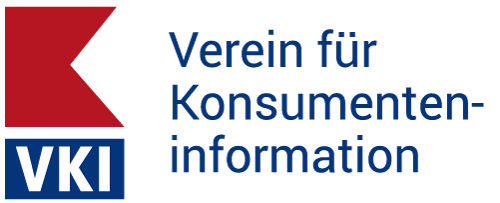New writings
Update September 2016: A consumer informed the European Consumer Centre about new writings of alleged Spanish lotteries. They are not written in English like the old ones, but in a bad German. The sender is "EUROPÄISCH LOTTERIE KOMMISSION BOARD SPANIEN".
The content is similar to the below described writings: Since two years, a high win would wait for the receiver. The money was "profitably invested" and if the "winner" doesn't react within a given period, the sum would be invested for another two years. In order to get the money, the receiver would have to turn to a German law firm. Furthermore, the writing contains a form where the consumer has to fill in personal data (name, address, job, bank account etc.). This form and a copy of a personal ID card should be send back to the lottery.
ECC Austria strongly advises against reacting to such writings! Don't ever give away your personal data, not to the sender nor to the mentioned German law firm. Please also read the information below.
Dubious writings and emails
Consumers get dubious writings and emails in English, telling them that they won high prizes in the Spanish lottery. The European Consumer Centre Austria (ECC) strongly advises against reacting to such notifications!
Also don't react to requests regarding payments of charges for the delivery of the alleged lottery win.
Some of the prize notifications are labelled with names of existing lotteries like "European Lotteries", "El Gordo de la Primitiva", Loterías y Apuestas del Estado (LAE)“, "El Mundo Lotto Company S.A." or fantasy names like "Fortune Lotteria", "Victoria State Lottery" and so on.
And this is how it works...
The consumers get a notification about a prize they won at a lottery, although they never participated at the lottery. To get the prize as soon as possible, they are told to
- make an advance payment of several charges
- send back personal data, bank data and a copy of an identity document.
If the consumer doesn't react within a very short period, the prize will be forfeited.
In most cases, the only contact details of the company are a phone number, an email address or a postal address.
The tricks of the fraudsters
As soon as the consumer contacts the lottery company regarding the delivery of his "prize", he is told to pay a deposit for the delivery in advance. This usually is a four-digit euro amount.
When the consumer transfers the amount, he is asked to pay a "handling fee" which also is a four-digit Euro amount.
The European Consumer Centre Austria (ECC) knows lottery victims who transferred thousands of Euros to Spain and even then the fraudsters didn't stop to request further money from them.
Spanish bank calls
Then an alleged employee of a Spanish bank calls and claims that the prize is already at the bank, ready to be transferred. But there would be one problem: the tax for the prize, which has to be paid due to the fact that the winner has no residence in Spain. The consumer should therefore pay the tax in advance in order to get the prize.
Silence after payment
When all amounts (up to several thousand Euro) are paid, every contact with the alleged lottery company breaks off and the trustful victims lost their money irretrievably.
Experience shows that it is pointless to make advance payments to foreign lotteries, especially if you never participated in one of their games.
Report to the police
If you are one of the victims, your only option is to turn to the police to make a claim. The Spanish police has been able to catch some members of gangs that operated from Spain.
Don't react and never pay in advance
ECC Austria strongly advises against reacting to such dubious writings and emails. You should never give them any personal data or information regarding your bank account.
In no way should you make any payments. Offical lotteries (national or foreign) never request any advance payments.
Be careful with your personal data
The European Consumer Centre (ECC) recommends to handle personal data, especially bank data, carefully.
The knowledge of your bank data may enable fraudsters to debit money from your bank account, even if you didn't agree to it in written form. Companies can file an application at banks to debit money from bank accounts of which they know the data. Banks usually don't check if the company actually has a written authorization to do so.
If you already gave away your data, carefully check your account statements. If money was debited unlawfully, you can inform the bank and they can try to get it back within 42 days.
We also want to point out that it is illegal to participate in foreign gambling while you are in Austria.
Spanish lottery warns against fraudsters
The Loterías y Apuestas del Estado (LAE) informs that fraudsters of different nationality misuse the names and prestige of the Spanish lottery in various countries.
The ECC knows that such companies also operate in Europe.
They move around the whole world without any barriers and use mobile phones, post office boxes, temporary or wrong addresses as well as names that remind of well-known institutions ("el Gordo", "la Primitiva", "European Lottery Comission" and others). Furthermore, they fake printed documents and signatures of several banks.








